Set off warning: Point out of abuse and rape.
In 2008, a social employee at a authorities hospital in Maharashtra’s Beed district was intrigued by a commotion that had ensued. Tatwashil Kamble (40), who was on the hospital to donate blood, quickly discovered the reply — the loss of life of a 17-year-old lady. Whereas the reason for her loss of life had been ascertained as ‘mata mrutyu’ (loss of life of a girl throughout childbirth), Kamble knew there have to be extra to it. Sadly, speaking to the folks round him and the physician left him aghast.
They revealed that the lady had been to the hospital a number of instances within the final three years over tried pregnancies. The social employee was fast to infer that this lady had been married on the age of 14 in a blatant case of kid marriage.
This was surprising to him. However what the medic mentioned subsequent — “This is only one of many such circumstances” — compelled Kamble to dedicate the remainder of his life to the reason for stopping little one marriages in Beed.
Elaborating on this, he says that whereas a majority of such circumstances have been bracketed as ‘maternal deaths’, the actual reason for loss of life is little one marriage.
Kamble was joined by Ashok Tangde (55) in his quest to place a halt to this widespread observe. As a part of the Youngster Welfare Committee (CWC) — an autonomous establishment fashioned beneath the Juvenile Justice Act (2015) — the duo has been working to make sure a safer world for women within the Beed district.
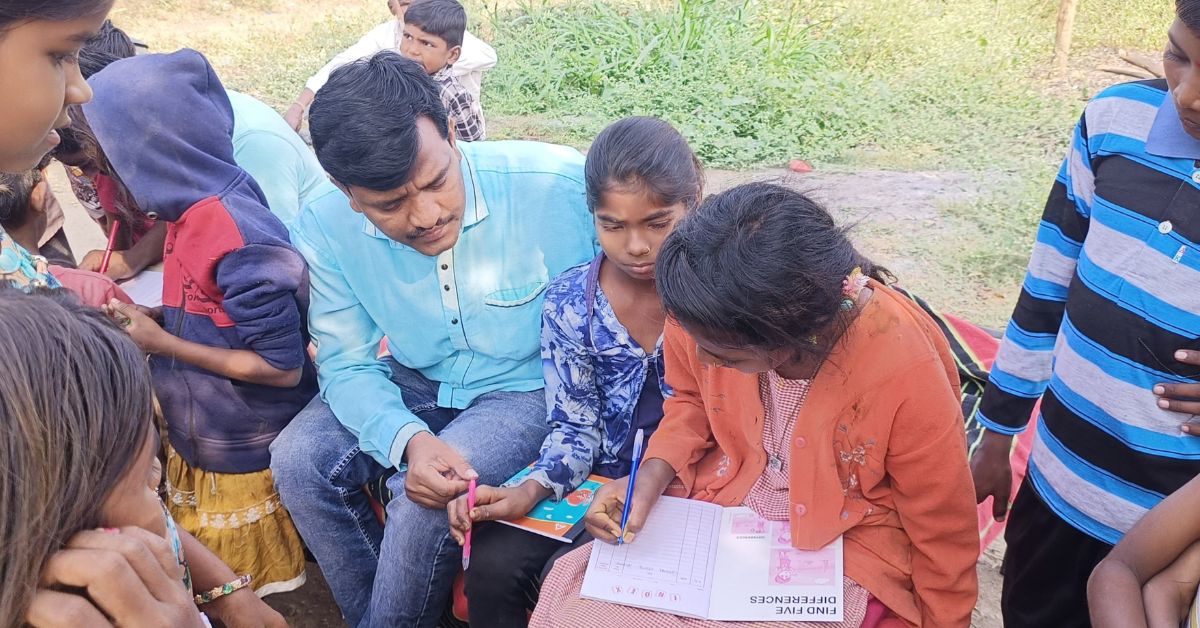
How sugarcane is tied to the social evil
The ‘epicentre of sugarcane cutters’, Beed is abandoned yearly in October as 1000’s of farmers migrate to Western Maharashtra and Karnataka to chop cane for the factories in these areas. “So as to add to this, drought and poverty within the district make it robust for these farmers to care for his or her youngsters,” Kamble explains.
The younger ones fall to neglect. The farmers can neither go away their youngsters alone at dwelling for worry of their security nor can they take them alongside to the fields which could intrude with their productiveness. And so, they select the third unsuitable choice: marrying their youngsters off.
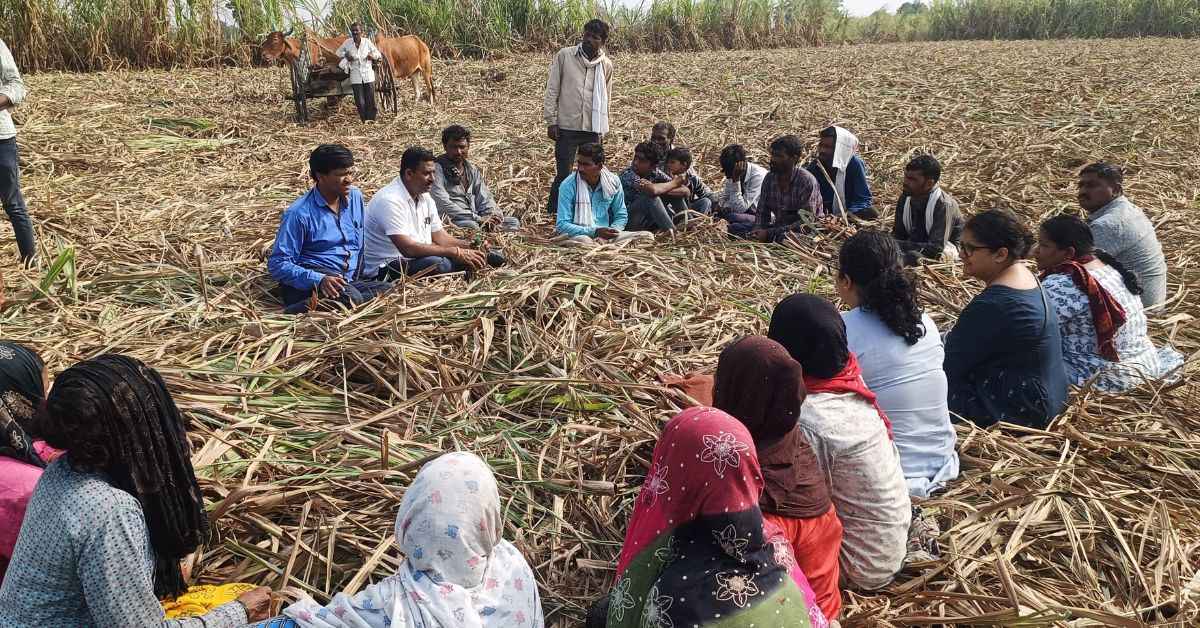
As a UNICEF report factors out, one in three of the world’s little one brides stay in India. The report continues that the nation is dwelling to 223 million little one brides. On the onset of their journey, these statistics as soon as shocked Kamble and Tangde into advocating for the rights of kids. Nonetheless, they now merely disagree with them.
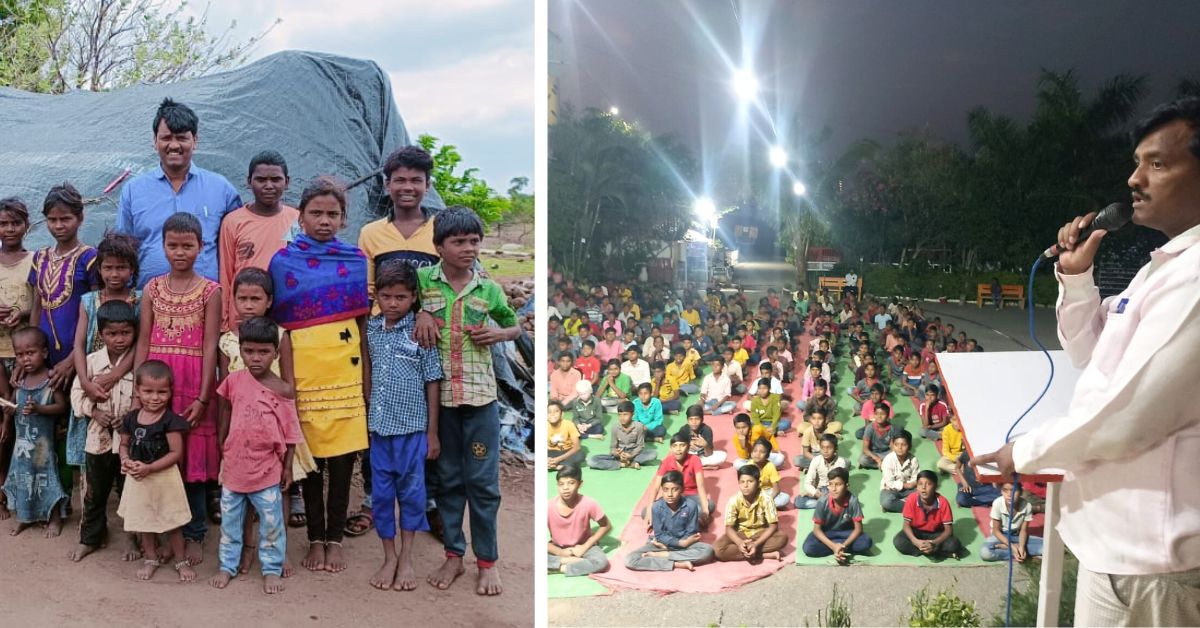
The quantity on the bottom simply bypasses this determine, Kamble notes. Actually, their journey has given them a window into the kids’s ache and led them to find how the repercussions of kid marriage are multi-pronged. “Not solely do these youngsters lose out on an training, however in addition they undergo trauma. On our hospital visits, we see youngsters as younger as 16 ship infants, and 22-year-olds having hysterectomies,” Kamble shares.
The incidences of maternal loss of life enhance within the youthful inhabitants, in line with the Nationwide Fee for Safety of Youngster Rights. Primarily based on the Census (2011) knowledge, the report states that ladies between the ages of 10 and 14 are 5 instances extra more likely to die throughout being pregnant and childbirth than ladies within the 20-24 age group.
Youngster marriage must be put to an finish
With this objective in sight, the duo spent the preliminary few years of their advocacy working with district collectors, superintendents of police, and gram sevaks (village heads) to create consciousness concerning the rising situations of younger wards being given away to older males in matrimony.
Alongside the way in which, they found that complacency was the rationale behind the social evil. And so, their makes an attempt to coach the authorities and get a plan in place to single out potential little one marriages and cease them from taking place, started.
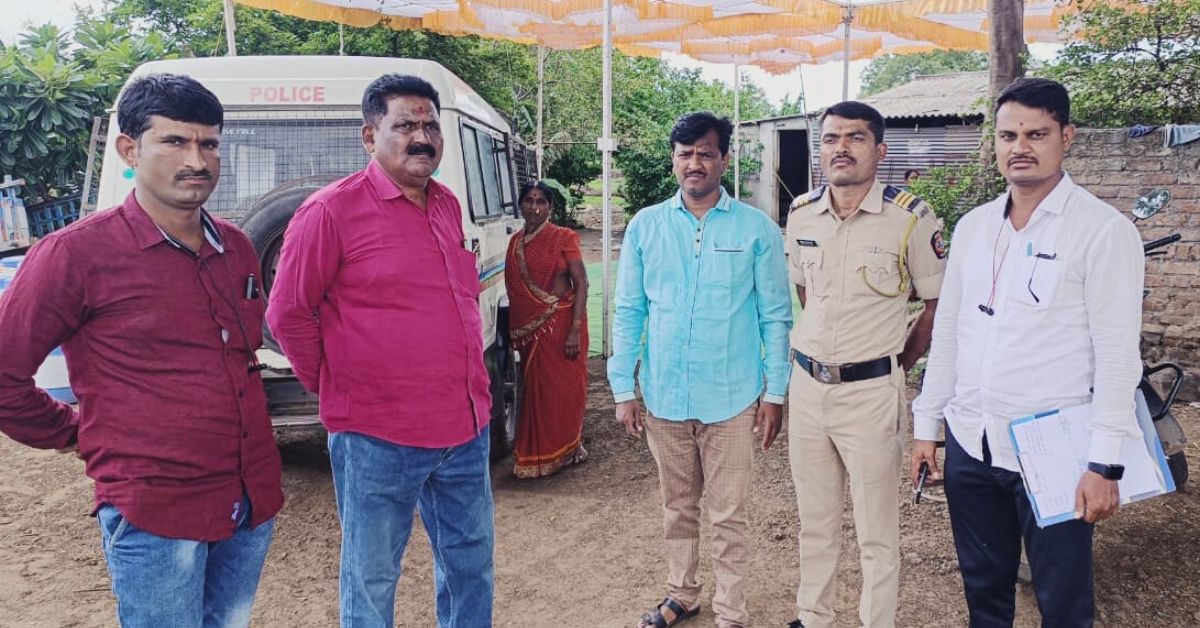
Inside minutes of a tip-off, Kamble and Tangde would attain the spot and save the day. However with time, they started seeing a flaw within the plan. “We couldn’t be in all places,” Tangde sighs. This gave start to a community of informants, social staff, and ladies from varied self-help teams within the villages.
However simply as they thought their plan was foolproof, they noticed one other loophole. “Stopping a baby marriage in a single village solely led the household to get the kid married in one other,” shares Kamble. To cease this and the stigmatisation of the women following the occasion, the duo designed a powerful rehabilitation plan.
Since 2011, the 2 social activists have been enrolling the survivors of kid violence and little one marriages in colleges, counselling households, enabling entry to authorities schemes that will profit ladies, and following up till the lady reaches 18 years of age.
“We additionally put rape survivors in contact with little one safety providers. In these circumstances, merely giving them monetary assist just isn’t sufficient,” says Kamble.
He explains, “A few of the survivors are younger youngsters, whereas some are even disabled. They should have their paperwork in an effort to make a powerful case. We assist them with this, join them with district-provided legal professionals, and information them with the best way to method courtroom.”
However regardless of the the Aristocracy of their work, folks in rural Beed don’t admire their meddling.
Placing this case into level, Kamble tells the story of a younger lady Anjali (identify modified) who contacted him for assist as she was being coerced into marriage. “We tipped off the media and police, and headed to the placement,” he says.
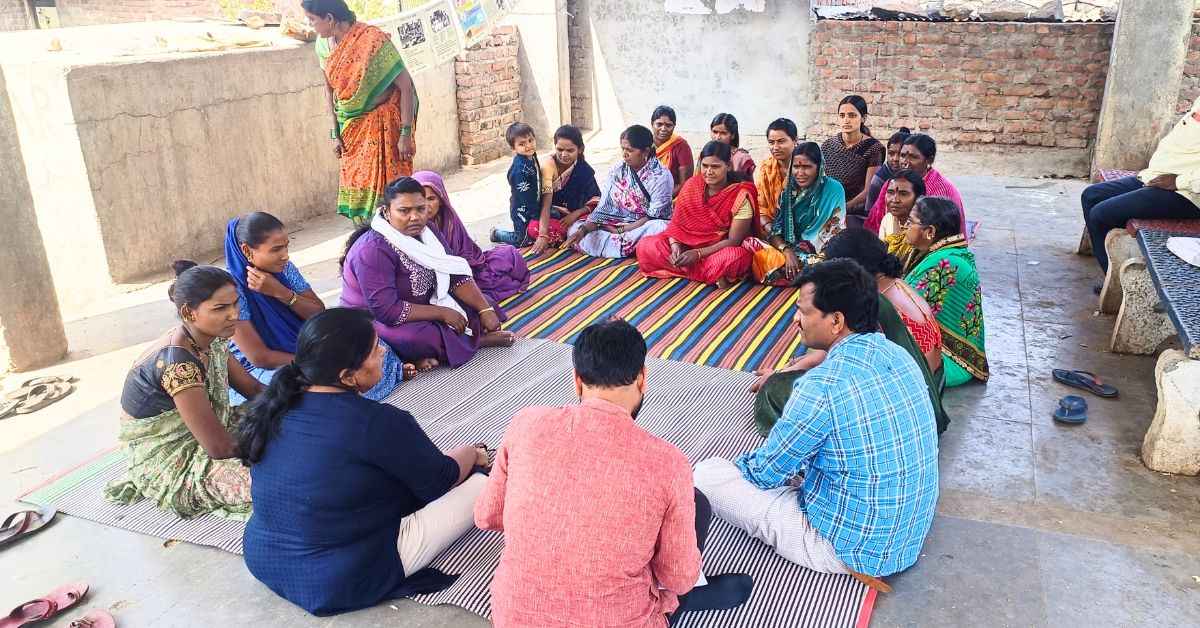
The police received there earlier than Kamble might. “The household denied that a baby was being married off. They insisted {that a} standard household operate was being celebrated. When the police lastly received them to confess the crime, the lady’s mom started threatening to finish her life if the police didn’t permit the wedding to proceed.”
Kamble was in a position to mitigate the dramatic flip of occasions by counselling the household, educating them concerning the distorted future that awaited the lady, and stopping the wedding.
It’s not possible to anticipate a change in a single day. A change in mindset will take time, he believes.
Altering the narrative by means of digital intervention
Since 2011, Kamble shares that he and Tangde have been profitable in stopping round 250 little one marriages yearly. Of those 250, they are saying that over 25 youngsters have been given a brand new lease on life by means of rehabilitation. He additionally claims that over 70 little one sexual abuse survivors are rehabilitated every year as properly.
“In our early years of labor, folks in Beed weren’t even conscious of the Prohibition of Youngster Marriage Act, 2006,” Kamble says, including {that a} gentle on the finish of the tunnel is that individuals know concerning the Act now. “They’re beginning to see sense in letting their daughters research as an alternative.”
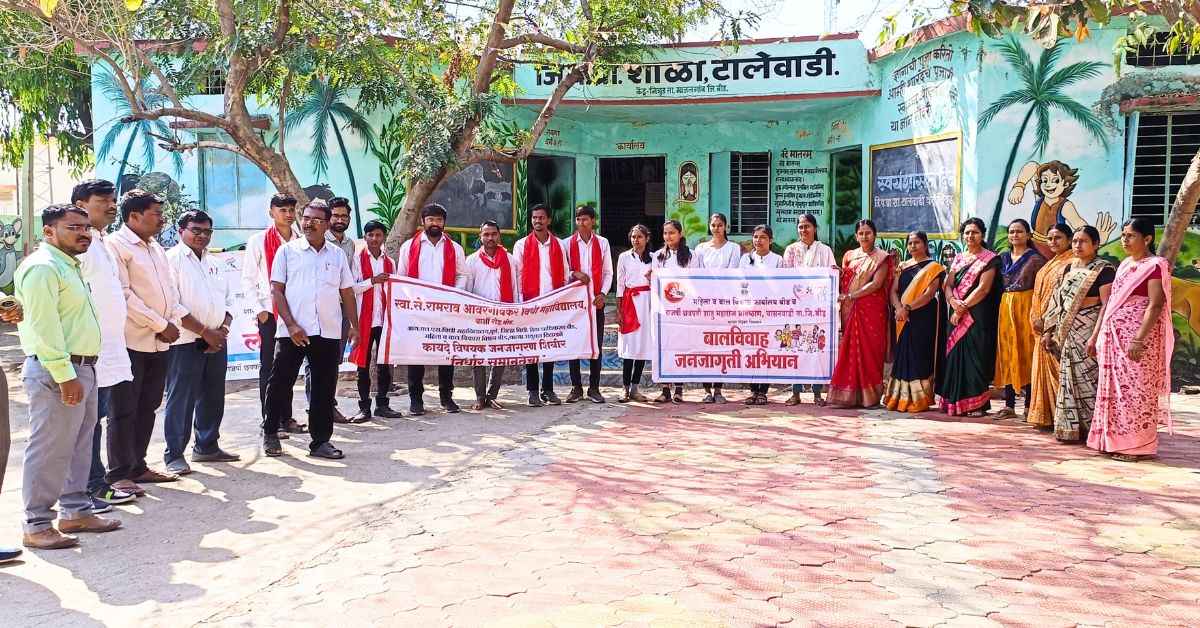
Vivekanand Ashok Giri, a village head, seconds this. “Tatwashil and Ashok take quick motion once they get a criticism of a little one marriage taking place. They work carefully with us and the village authorities to do that.” He provides, “In a month, Beed sees round 5 little one marriages these days. We’re profitable in stopping many of those.”
Blowing the whistle on a observe that has been customary for years now, have to be robust, I assume. Kamble mirrors the sentiment. However he insists that in each enterprise of fine work, there may be sure to be some resistance.
Sharing an anecdote of his school days, when he was pursuing his MSW (Masters in Social Work), he says, “There was little or no consciousness about blood donation on the time. I began working with a number of associates to organise camps to encourage folks to donate blood. However the donors’ dad and mom weren’t too completely satisfied about it.”
They’d berate him for forcing their wards into giving blood which they believed would “make them much less human”. However step by step, the notion was dispelled and Kamble grew to become the primary level of contact in circumstances the place somebody wanted blood for a relative or buddy.
It was his work in blood donation that related him with medical doctors, paramedics, social staff and others — the identical community that he now depends on for data on little one marriages in Beed.
Actually, as Kamble interjects, expertise has proved very resourceful, particularly WhatsApp. “We will ship the victims’ particulars and footage to the authorities and the closest social employee. It speeds issues up,” he notes. Previous to 2015, when the app wasn’t as fashionable, he says it was robust navigating circumstances and a sluggish course of.
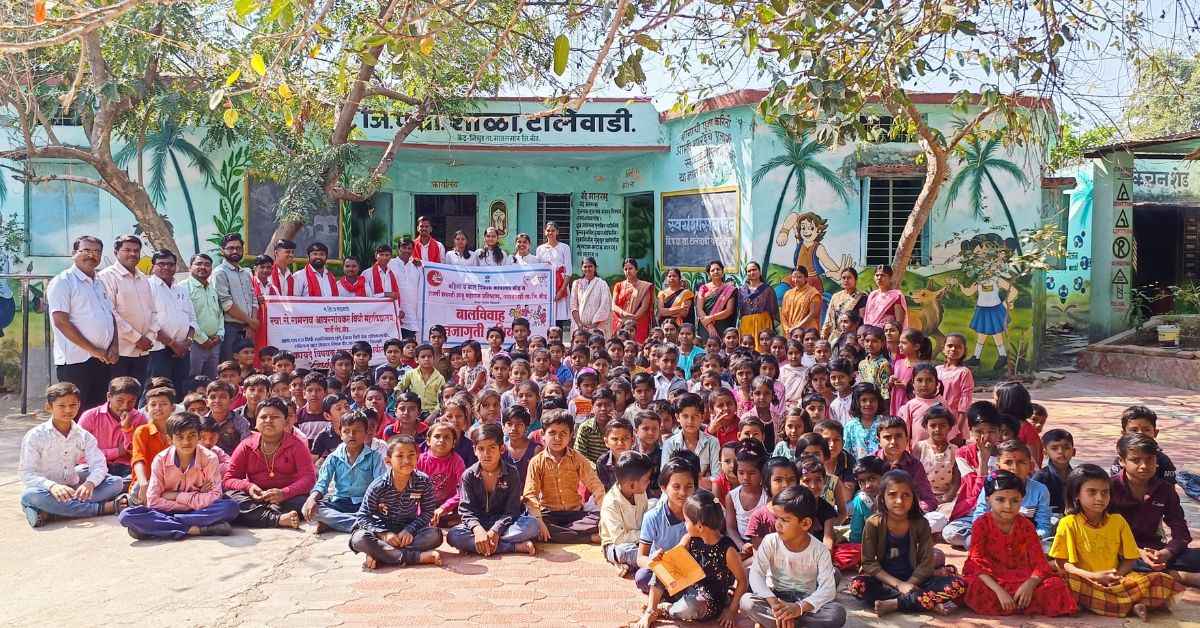
“We might get tip-offs on a name. Then we’d head to the authorities and gather paperwork. There was a variety of rumour and paperwork. It was a trouble.” He shares a number of anecdotes of how important data just like the lady’s age received misplaced in dialog a couple of times. “We reached the placement and discovered that the bride was properly above 18 years outdated. We had dinner there and headed again,” he shares in a lighter vein.
However even in circumstances the place there may be an underage lady being wedded off, the duo preserve that halting a marriage is simply step one. “We then counsel the household to know what led to them taking this step,” Tangde shares.
Then, a police case is registered beneath The Prohibition of Youngster Marriage Act, 2006 in opposition to the adults concerned. If the wedding is consummated, the person is charged beneath Safety of Youngsters from Sexual Offences (POCSO) whereas the CWC takes the underage lady beneath safety.
Sharing one of the crucial current circumstances, Kamble says they received a tip-off a couple of little one marriage that had already taken place a number of weeks prior. “I knowledgeable the gram sevika and requested her to go to the lady’s dwelling. For 3 days, nobody answered the door.”
On the fourth day, the group led by Kamble reached the home at 6 am. They spoke to the lady, helped her re-register within the native faculty, after which proceeded to file an FIR in opposition to the household. “The lady is finding out now and is completely satisfied,” Kamble informs.
Ask the duo about their most difficult case they usually reply it wasn’t a case, however as an alternative a time period. “Youngster marriages peaked in Beed amid the COVID-19-induced lockdown. We’ve greater than 1,300 villages right here and every village witnessed 10 circumstances,” Kamble notes.
The truth that gatherings have been much less crowded and never many individuals within the village knew about these weddings due to social distancing made it harder for the duo to trace down the miscreants.
However with every case they remedy, the duo says it will increase their will to do higher. And every time they hear of a survivor who has risen to success regardless of the chances, it makes them proud. “Only in the near past, one of many lady’s fathers got here to us with pedhas (milk sweets) to have a good time his daughter finishing her BHMS diploma (Bachelor of Homoeopathic Drugs and Surgical procedure). The lady was rescued by us a number of years in the past.”
He shares one other story of a woman who not too long ago scored 93 % in her board exams. “On the age of 14, we had stopped her from being married off and had her enrolled into faculty as soon as once more. Her achievement is nice.”
Whereas these tales are heartening for Tangde and Kamble, they are saying the tip objective is a world the place ladies don’t want saving. A world the place freedom will reign with out combating for it.
Edited by Padmashree Pande
Sources
Ending Youngster Marriage by UNICEF
A Statistical Evaluation of Youngster Marriage in India


